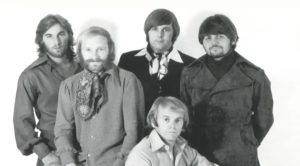Original Rush Bassist Reveals Why Geddy Lee Took His Place

UNITED KINGDOM - JANUARY 01: Photo of Neil PEART and RUSH and Alex LIFESON and Geddy LEE; L-R: Alex Lifeson, Neil Peart, Geddy Lee - posed, studio, group shot, (Photo by Fin Costello/Redferns)
When Rush was just beginning to form its identity, things were still in flux. Like many young bands, lineups were fluid, and long-term plans were far from set in stone. It was during these early days that Jeff Jones, the band’s original bassist, found himself at a crossroads.
Jones wasn’t necessarily dissatisfied with the band, but the logistics of being part of Rush were beginning to weigh on him. The commute was long, and the situation didn’t feel sustainable. Rather than push through, he offered a practical solution that would shape rock history: he recommended his friend Geddy Lee to take over on bass.
This casual suggestion would ultimately change the course of the band. Jones recalls there was no dramatic fallout—just a quiet transition. “Next thing I knew, Geddy was in Rush,” he said. There was no grand send-off or dramatic exit; instead, the band’s lineup evolved naturally, setting the stage for the Rush the world came to know.
No Regrets, Just Reflection
It’s tempting to wonder what could have been, especially with a band as iconic as Rush. But for Jeff Jones, hindsight doesn’t come with bitterness. He looks back on the change with perspective, not regret.
Jones is the first to admit that his musical style and vocal range would have taken the band in a very different direction. He points out that he couldn’t match Geddy Lee’s vocal capabilities and that his version of Rush would have sounded like a different band altogether. In his words, “Rush wouldn’t have been Rush.”
His detachment from the “what ifs” is refreshing. Instead of holding on to missed opportunities, he’s content with how things played out. He recognizes that Geddy Lee was the right fit—not just in sound, but in vision—and that Rush’s success depended on that chemistry.
View this post on Instagram
Ocean, Red Rider, and the Road Ahead
After leaving Rush, Jones didn’t leave music behind. He went on to join Ocean, a band that achieved moderate success and even launched a world tour. For a while, it seemed like things were lining up just fine for him.
Unfortunately, industry politics got in the way. The label mishandled Ocean’s trajectory, stalling what could have been a bigger breakthrough. Still, Jones didn’t give up. He eventually found stability and recognition with Red Rider, a Canadian rock band that gave him a renewed sense of purpose.
Though his career didn’t reach Rush-level fame, Jones carved out his own path. His journey may have taken a different turn, but it was still one filled with meaningful contributions to music and collaborations that mattered.
View this post on Instagram
The Right Fit at the Right Time
The story of how Geddy Lee joined Rush isn’t dramatic—it’s human. A friend recommended another friend. A decision was made based on convenience and proximity. But that choice shaped the sound of one of rock’s most influential bands.
Jones may not have made the records or stood on the same stages as Rush’s legendary trio, but in many ways, his quiet decision became the catalyst for their legacy. Without his suggestion, there may not have been a “Geddy-era” Rush at all.
In the end, every band’s story has early forks in the road, and this was one of Rush’s. Jones’s honesty and humility about it only deepen the appreciation for how serendipitous great music can be. Sometimes, knowing when to step aside is just as important as stepping up.











